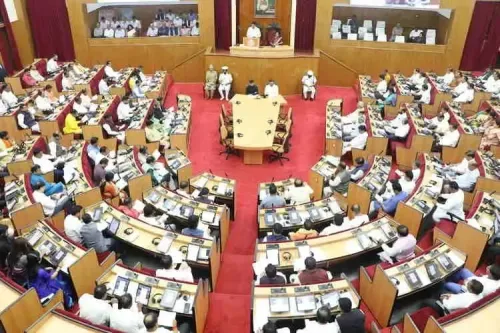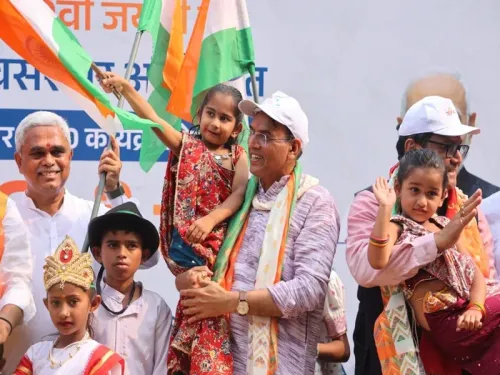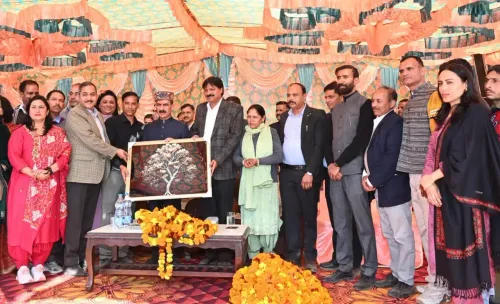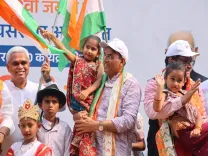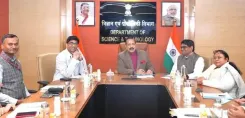Should India Develop Internationally Competitive Tea Varieties?
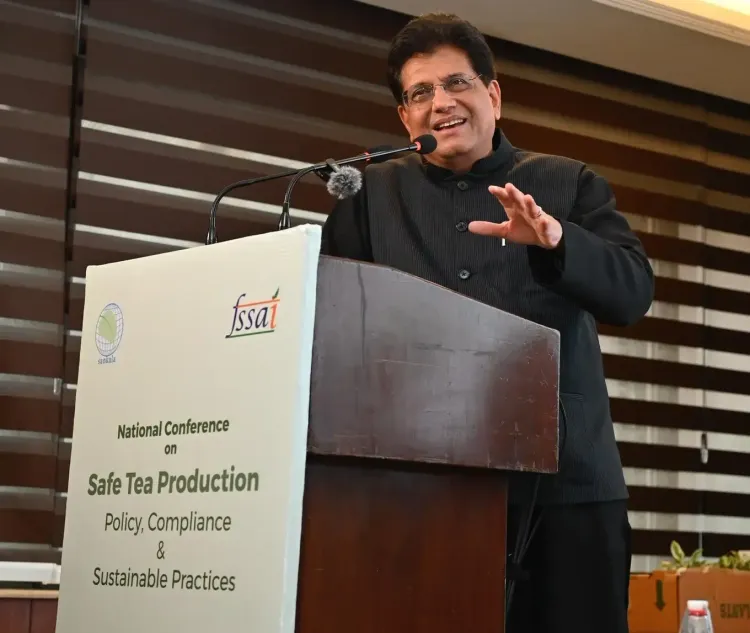
Synopsis
Key Takeaways
- Need for innovation in tea varieties to meet global demands.
- Sustainable practices are crucial for quality and labor standards.
- Research and experimentation are key to competitiveness.
- Support for small growers can enhance financial returns.
- Government initiatives aim to strengthen the tea sector.
New Delhi, Nov 28 (NationPress) India, widely acknowledged for its iconic tea varieties like Darjeeling, Assam, and Nilgiri, is urged by the Commerce and Industry Minister Piyush Goyal to expand its portfolio of internationally marketable tea options.
As one of the world’s leading tea producers and exporters, India boasts an annual export volume approaching 255 million tonnes.
Speaking at the Sankalp Foundation’s ‘National Conference on Safe Tea Production,’ Goyal stressed the need for India to transcend traditional tea strengths and innovate new signature blends that align with evolving consumer preferences, wellness movements, and premium lifestyle markets globally.
The minister underscored that sustainable practices, responsible labor standards, and ongoing innovation are crucial for maintaining high-quality tea and low Manufacturing Readiness Levels (MRL).
He also called on researchers and scientists to harness India’s diverse agro-climatic advantages to cultivate innovative varieties and high-value products that can unveil fresh export avenues.
Goyal highlighted that such innovation-driven value addition would not only bolster India’s global presence but also empower farmers, especially small growers, to achieve better financial returns.
The Minister asserted that continuous research, experimentation, and product development are vital for ensuring that Indian tea remains competitive, unique, and prepared for the future in a fluid global tea market.
He emphasized the necessity of protecting this pivotal industry, which is integral to India’s hospitality and trade culture, and noted that insights from this conference would aid the Ministry and the Tea Board in further fortifying the sector.
While the government is devoted to enhancing the well-being of tea growers, feedback, recommendations, and guidance from stakeholders, researchers, and industry representatives are essential for crafting effective policies. He pointed out the government’s Rs 1,000-crore package aimed at assisting tea growers and workers, alongside initiatives like the Chai Sahayog App, which helps small growers secure better prices for their produce.
Goyal encouraged the broader adoption of innovative and sustainable farming methods, noting that practices such as drip irrigation can significantly boost water efficiency and overall productivity for growers.

